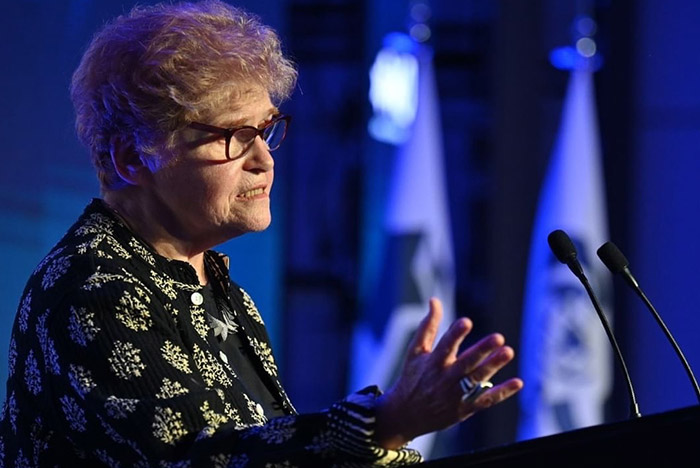American View
Personality
Deborah Lipstadt on the ‘Tsunami’ of Antisemitism

Ambassador Deborah Lipstadt has spent her entire career studying and educating others about antisemitism and the Holocaust. But even she was taken off guard by the surge in Jew-hatred that erupted in the United States and around the world in the wake of the October 7 Hamas attacks in Israel. Lipstadt, who serves as the Biden administration’s special envoy to monitor and combat antisemitism, said she was “shocked” but not completely surprised by what she terms the “tsunami” of antisemitism that has engulfed Jews.
“It was an organized effort in many places that we didn’t anticipate and that we were unprepared for,” she said, citing among other examples recent allegations by the director of national intelligence that Iran is inciting and financing some of the anti-Israel protests.
Lipstadt said she’s not discounting “the passionate feeling among students on the campuses, whether they know the issue or not,” but there are clearly outside influences who are amplifying this.
Lipstadt, whose position is based in the State Department and focuses primarily on antisemitism abroad, recently initiated a set of global guidelines to fight Jew-hatred. Thirty-seven countries and four global bodies have so far signed onto the document, which was launched at a gathering in Buenos Aires in July. The ambassador, who is on leave from her longtime position as a professor at Emory University, spoke to Hadassah Magazine in a video interview from her State Department office in Washington, a few days before she headed to Geneva where she shared the guidelines at a workshop on antisemitism for 80 diplomats from 50 countries at the United Nations Human Rights Council. This interview was edited for brevity and clarity.
Given all the organizations devoted to fighting antisemitism, why were we unprepared for what has transpired?
I don’t know. I think it’s going to take a long time to unpack that.
I think we were complacent. I think we weren’t aware of some of the efforts that were being made. There were a lot of groups and entities and national entities that were unprepared on October 7.
How did the global guidelines come together? And why do you think they are so significant?
So much of what we do is reactive. This is pro-active, sharing common wisdom and best practices for those of us who are engaged in the fight. Among the 12 guidelines: leaders must speak out; don’t politicize antisemitism, recognize it comes from the left and the right; educate, understand what it is. We’re hoping countries will use it as a tool in their fight against antisemitism. They already are.
To what extent can these guidelines be used to combat antisemitism on college campuses across the United States and around the world?
I could have told you what was coming with the return to schools—to batten down the hatches, that it’s going to be worse than last year. I have met informally with some top American university officials and told them they can use these guidelines. To speak out and to enforce their rules and laws. They can do so without curtailing freedom of speech.
To what extent do you think the situation on campus has been harmful for Jewish students?
It’s made their lives more difficult. They’re choosing universities based on how comfortable they will feel; they’re deciding whether to put a mezuzah on the outside of the door, whether they’re choosing to have a Jewish roommate. I worry about those students who don’t have a strong identity who will decide to go into the closet and play down their Jewish identity.
Lisa Hostein is the executive editor of Hadassah Magazine. The full interview can be viewed here, and a longer written version will be available in the November/December print issue of the magazine.









 Facebook
Facebook Instagram
Instagram Twitter
Twitter
Leave a Reply